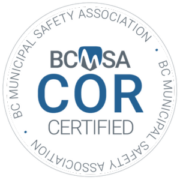Are you in the ‘sandwich generation’?
 The sandwich generation is a term first coined by social worker Dorothy Miller in 1981. She was describing adult children who were “sandwiched” between their aging parents and their own maturing children. Every day at our campus of care, we meet one of the members of the sandwich generation. They are arriving with housecleaning equipment or helping their elderly loved one into the car to go to an appointment. They are having a coffee with mom or dad in the bistro or advocating for a loved one to stay in hospital rather than return to their apartment when their care needs are significant.
The sandwich generation is a term first coined by social worker Dorothy Miller in 1981. She was describing adult children who were “sandwiched” between their aging parents and their own maturing children. Every day at our campus of care, we meet one of the members of the sandwich generation. They are arriving with housecleaning equipment or helping their elderly loved one into the car to go to an appointment. They are having a coffee with mom or dad in the bistro or advocating for a loved one to stay in hospital rather than return to their apartment when their care needs are significant.
According to Statistics Canada, an average of three-in-10 Canadians fit this description – raising children while responsible for the care of an elderly parent. In a recent poll done by Insights West for BC Care Providers, it was discovered that more than 60 per cent of those identifying as “sandwich generation” found it challenging to keep informed about the health status of a parent and more than 50 per cent found it difficult to afford the costs associated with caring. (www.bccare.ca)
I recall watching a black van pull up to the front of our independent living apartment. The driver ran around to the back to retrieve a wheelchair and then rushed to the passenger side to assist her elderly father out of the van before he stepped out on his own. In the meantime, the sliding doors flew open and four boys ages eight -12 jumped out. Each was wearing their soccer team uniform and they were dirty after playing on the pitch. The boys were climbing all over the fences and running around the parking lot yelling at each other. Mom was trying to help her father out of the van. As I approached the van, she weakly called out to the boys to “behave”. Instead of asking her to keep her children in line, I asked her if I could help. When our eyes locked, I could see the exhaustion and the pool of tears forming as she gratefully accepted assistance. I imagined that grandpa was out at the soccer pitch watching the kids play. Instead, it turns out that she dropped her children off for soccer and took her father to a medical appointment during the game. Multi-tasking for two generations.
What can be done to provide support for this generation as they strive to honour their father and mother while training up their children in the way of the Lord?
The number one way that a child in the sandwich generation can thrive in caring for their elderly parent is to develop a team around them to provide services and support their caregiving. This may be family members, friends, hired services or a combination of all of these.
Organizing team members with roles and responsibilities can lessen the feeling that one person is “doing it all” and give opportunity to appreciate how others are playing a role. In the long-run, it can lessen the feeling for your parent that they are a burden to you as they experience less of your frustration or resentment.
Initially, caregiving falls to the family members. Very often, it is a woman who lives in close proximity to their parent who takes on this role. It most often defaults to the one who has the most availability and lives the closest.
Families often behave as if this will all fall into place on its own. It doesn’t. By the time your parent is in their 80’s, you should have started the group conversation on how each of you is able to provide support to your parent. You may have to work with half-siblings or step-siblings. You may be caring for a step-parent, aunt or uncle. Regardless of the family dynamics, the team of people who love and honour that individual need to gather together (by phone, skype or in person) to talk about how they will navigate the care of their loved one… together. These people form the core team.
Some words of advice if you are the primary caregiver… you may have the most difficulty in sharing the care of your parent. Although you are tired, you do have the most information on their care needs and their individualized expectations. You may have taken on this role because your parent doesn’t trust others in the family. You may have taken on this role because no one else stepped into it or you had the most free time. You may have taken on this role because you love your parent deeply and want to honour them to the end of their days.
You will need to find ways for others in your family and friendship circle to help in their own way (within safe parameters). One person simply cannot do it all. Think about how siblings and grandchildren can help in providing a support team. Each one giving a little can share the work load and relieve the primary caregiver of stress and resentment. From the housekeeper to the taxi driver to the pastor, these are team members who provide holistic care for your elderly loved one. Write these names down. This is your team.
Think about your expectations of care for your parent. Write them down. Do you think it is okay or not okay to have a paid person visit with your parent? Do you think it is okay or not okay to not see your parent every day? Do you think it is okay or not okay if your parent lives with you or in a retirement apartment? These questions will help you develop the roles and responsibilities that you value in caring for your parent.
Set up a meeting for the core team. Plan for regular meetings, perhaps every four months to talk openly about the care of your loved one. You may be able to provide a specific level of care for a certain duration, but need to re-assess over time with the others who love your parent. If you are alone in caring for a parent, take the time with a professional (counsellor) or a trusted friend to check-in to see if you are coping or need additional support. With your core team members, pick your roles and responsibilities – share the work.
With your core team members, pick your roles and responsibilities – share the work. You’ll need someone to take on one or more of the following roles:
- Research: retirement home tours and pricing, medical equipment, seniors services, finding options and realistic timelines, knowing what is next and what needs to be done, government support and renovation grants (HAFI)
- Administration: filling out the paperwork for grant applications, subsidized care, BC Housing SAFER program, Veteran’s Affairs
- Purchasing and Rental: medical equipment, supports for living, hearing aids, telephone equipment, equipment to support independence with arthritis, diabetes, etc.
- Installation / Renovations: managing a renovation project (HAFI program)
- Advocacy: knowing and understanding how a parent is assessed and what is required from the support team, knowing how and when to insist on more from the medical teams or other service providers
- Nursing Care: understanding clinical care needs, medications and frequency of care, organizing in-home care (private or subsidized), organizing occupational therapy, physical therapy
- Emergency Response: being the first-call for a lifeline response call button
- Financial Decisions: knowing and understanding the finances of your parent, being Power of Attorney for financial decisions, trusted by the other members of the team,
- Medical Decisions and Activities: knowing and understanding the medical wishes of your parent for end-of-life, working on the Advanced Care Directives together, filling out the MOST (Medical Orders for Scope of Treatment) with your parent and their doctor
- Everyday Living Support: organizing housekeeping, daily meals, driving and outings, transportation to and from appointments
- Social Life: researching and ensuring that your parent is not lonely, organizing visitors, attendance at clubs or church, opportunities to visit with others in their circle of friends, carrying on hobbies that are meaningful, getting a tablet and signing up your parent for Skype, Instagram or Facebook to stay in the loop
- Spiritual Life: ensuring that your parent has spiritual care, regular input through music, television, Bible Study groups or one-on-one visits
- Getting Out: one way to lift the spirits is to get out of your home – this can be a Sunday drive or a trip across the country to visit loved ones. Arranging these outings can make all the difference. We all know how it feels to go “stir-crazy”.
- Team Communication: someone who can keep everyone appraised on what they need to know, setting up a guest book so that you can all see who visited (sometimes a parent with dementia will insist that no one is visiting), putting together a binder of information so that all can know what is happening with their loved one
- Working Together From a Distance: planning visits from afar to coincide with when the local sibling needs respite help, using online tools to communicate and share information (eg: Facebook Room, Google Drive, Skype)
As you know, families are not perfect. There can be long-standing issues of trust, hurt and resentment that make the development of this core team especially challenging. Be wise as you work through roles and responsibilities. Find forgiveness and willingness to find a way to work together. Ask and allow others to contribute even if they have been distant or estranged. Remember that your parent has a unique relationship with each of you. Ask your parent for their advice as you move forward.
Developing a core team is not easy, but it is worthwhile. It gives each loved one an opportunity to contribute. One may not be able to visit daily, but they can do the renovations, pay for renovations or organize the finances that are required to renovate your parent’s home.
Another may live overseas and they want to contribute, but find it difficult. They can do research online to provide the information and recommendations for your parent’s long-term care. When they come for their annual visit, they can work on a project that may advance your parent’s care, such as merging all the banking into one account or creating a binder of vital information.
Use the generations in your family. Grandchildren can drive grandparents. They can set up online communication. They can participate in the visiting schedule and they can clean a grandparent’s apartment. Great-grandchildren are great joy-bringers.
A final word of advice for those who are caught in the middle of a sandwich – remember that there are others who can be a driver or a nurse. There are others who can clean a house or purchase groceries. There is no one else who can be a daughter, son, niece or nephew. Find those others to support your parent and be the best child that you can be as you honour your parent and model this as you train up your children in the way that they should go.

Sharon Simpson
Sharon Simpson is the Director, Communications and Stakeholder Engagement at Menno Place, a senior’s campus-of-care located in Abbotsford, BC – www.MennoPlace.ca
This article was first published in The Light Magazine.






